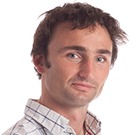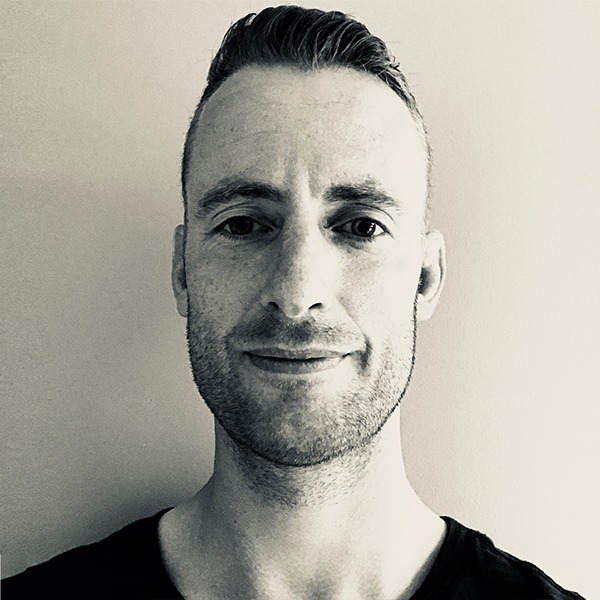Objective vs. Subjective Lameness Evaluation
Species
Equine
Contact Hours
3 Hours - RACE Accredited
Early Booking Deadline
Sun, 28 January, 2024
Registration Deadline
Fri, 16 February, 2024
Language
English
Discipline
Anaesthesia & Pain Management
Diagnostic Imaging
Orthopaedics
Other
Sports Medicine
Industry Partners
Global

Veterinary Partners
Global


Recorded on: 12th March 2024
Panelists:
Andy Fiske-Jackson BVSc, MVetMed, FHEA, DECVS, MRCVS - Royal Veterinary College, UK
Maarten Oosterlinck DVM, PhD, DECVSMR, DECVS - Ghent University, Belgium
Michael Ross BS, DVM, MBA, DACVS - Pine Bush Equine Services and Veterinary Hospital, USA
Moderator:
Erin Contino MS, DVM, DACVSMR - Colorado State University, USA
PANEL DISCUSSION DESCRIPTION
Evaluating lameness in horses is both an art and a science. This international panel of lameness experts will compare and contrast various subjective and objective lameness evaluation methods and explore the merits of each. The panelists will discuss their experiences with currently available objective lameness measurement systems including practical applications, how they compare to subjective evaluations and future directions for these technologies. The use of subjective versus objective (or both) lameness evaluation for a variety of specific situations, including routine, ridden and subclinical lameness examinations and diagnostic blocking, will be explored. This panel discussion promises to be exciting and informative as our world-leading specialists share their knowledge and experience. Questions and comments from attending vets will be welcomed.
Andy qualified from the University of Liverpool, UK in 2004. He initially spent three months working for the Society for the Protection of Animals Abroad, a charity caring for working equids, in Morocco. He then spent two years working for a mixed practice doing predominantly farm and equine work. In July 2006 he undertook an eighteen month internship at the Liphook Equine Hospital after which he spent a further six months working as a first opinion equine ambulatory vet for the same practice. In July 2008 he started a residency in equine surgery at the Royal Veterinary College and went on to join the surgical team at the College where he currently works. He became a Diplomate of the European College of Veterinary Surgeons in February 2012. Andy has published several articles in peer reviewed publications and presented at various national and international meetings. His research interests include digital flexor tendon sheath pathology, mesenchymal stem cell application in superficial digital flexor tendonitis and the role of back pain in poor performance.
Erin Contino, MS, DVM, Dipl. ACVSMR, is an assistant professor in equine sports medicine at the Colorado State University (CSU) College of Veterinary Medicine and Biomedical Science’s Equine Orthopaedic Research Center. Contino graduated with a veterinary degree from CSU in 2010 and completed a one-year internship at Pioneer Equine Hospital in California. She then returned to CSU for a three-year Sports Medicine and Rehabilitation Residency and became a Diplomate of the American College of Veterinary Sports Medicine and Rehabilitation in 2014. Before and during her time as a veterinary student, she also completed a master’s degree in equine radiology. Her research interests include equine musculoskeletal imaging, diagnostic analgesia, lameness, and performance issues in equine athletes. In her free time, she’s a passionate three-day event rider.
Maarten Oosterlinck graduated from Ghent University in 2004 and has gained extensive clinical experience in equine orthopaedics and surgery at the faculty of veterinary medicine of Ghent University. Combining clinical work with research, Maarten earned his PhD on the use of pressure plate analysis for the objective evaluation of equine locomotion in 2011. In 2014, he passed the qualifying exam of the European College of Veterinary Surgeons in 2014. In 2018, he also became a diplomate and board member of the European College of Veterinary Sports Medicine and Rehabilitation. He currently serves as president of this college. Maarten has published numerous papers in peer-reviewed journals and several book chapters on a variety of equine orthopaedic and surgical topics, including visual and quantitative evaluation of lameness, hoof biomechanics, diagnostic analgesia, equine canker, etc. and he is a regular speaker and instructor at international courses and congresses. He is a scientific editor for Equine Veterinary Journal. He is actively involved in the supervision of residents and PhD-students, and has been a member of the examination committee of PhD-candidates in multiple countries. Maarten's daily clinical work is focused on equine orthopaedics and surgery, with a particular interest in podiatry and gait analysis.
Dr. Ross hails from Chestertown, NY near the beautiful Lake George area. He grew up there riding and showing Western Pleasure Horses with a special affinity for reining horses. He received his undergraduate degree at Cornell University and then went on to become a graduate of Cornell University’s New York State College of Veterinary Medicine in 1981. After veterinary school and a 1-year internship at Cornell, he was accepted into a 3-year equine surgery residency program at the University of Pennsylvania’s New Bolton Center where he was appointed Lecturer in Surgery from 1985 to 1988, Assistant Professor of Surgery from 1988-1993 and Associate Professor of Surgery from 1993-1999. In 1999, Dr. Ross became a full professor of Surgery. Dr. Ross became a Diplomate of the American College of Veterinary Surgeons in 1986 and an active member of the American Association of Equine Practitioners. Dr. Ross had broad clinical interests including equine gastrointestinal, respiratory and musculoskeletal surgery but in recent years has concentrated efforts in orthopedic surgery with a particular interest in arthroscopic surgical techniques. Equine lameness diagnosis and management has always been a passion and clinical focus with a special emphasis in the Standardbred and Thoroughbred racehorse. New Bolton Center is where he put down his roots and he is currently a consultant as a Professor of Surgery. Dr. Ross developed and is the Director of the Nuclear Medicine program at New Bolton Center. He is the author of over 420 scientific papers, books, proceedings, abstracts and book chapters. Ross and Dyson’s lameness textbook with companion CD, Diagnosis and Management of Lameness in the Horse, published December 2002 by WB Saunders (Elsevier Science), and now the 2nd edition, with a companion website, www.rossanddyson.com, published November 2010, is the culmination of over 37 years of study and interest in clinical examination, imaging and management of the lame horse. Ross and Dyson were recognized for that work by the Association of American Publishers for outstanding achievement in Professional and Scholarly Publishing (2003 award in the field of nursing and allied health).
During his career at the University, Dr. Ross would consult at Pine Bush Equine Services and even introduced Dr. Herb Burns to Dr. Howard Gill in 1992. Dr. “Doc” Gill, as you may know, was the founder of Pine Bush Equine Services. He retired in 2000 and sold the practice to Dr. Burns. Dr. Ross has proven his expertise and loyalty over his many years of working with Dr. Burns and Doc Gill.
Dr. Ross recently retired from the University of Pennsylvania to continue his passion for equine veterinary medicine by working more directly with horse owners in private practice at Pine Bush Equine Services. He has a passion for the New York area and in particular this practice. He looks forward to more hands-on experience with primary care equine practice and to working with you.
Qualified Vet
Online Panel Discussion
USD 85.00
Intern/Resident (Requires proof of status)
Online Panel Discussion
USD 65.00
Vet Nurse/Vet Tech (Requires proof of status)
Online Panel Discussion
USD 65.00
Veterinary Student (Requires proof of status)
Online Panel Discussion
USD 35.00
If the options you are looking for are unavailable, please contact us.
No tax will be added unless you are a UK taxpayer
Choose currency at checkout



















